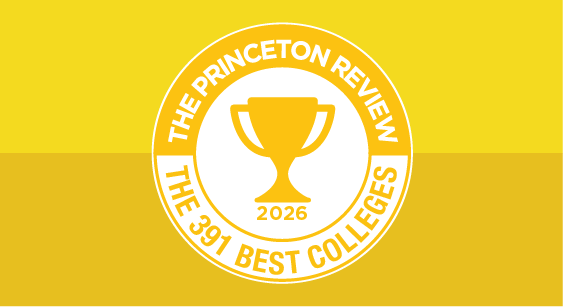
The ACT is different from the tests you take in school, so you need to approach it differently, too. Learn what types of Reading Test questions and passages you’ll actually face, and the strategies that will help you score higher.
What’s on the ACT Reading Test?
There are four ACT reading passages of about 800 words each, always in this order:
- prose fiction
- social science
- humanities
- natural science
After each passage, you’ll answer 10 questions that test you on what was directly stated as well as what meanings were implied in the text.
| What it is | What you can expect | |
|---|---|---|
| Prose Fiction | Excerpts from novels or short stories Most passages are contemporary, emphasize diversity, and often center on family relationships. |
|
| Social Science | Topics: anthropology, archaeology, biography, business, economics, education, geography, history, political science, psychology, and sociology |
|
| Humanities | Nonfiction passages—usually memoirs or personal essays Topics: architecture, art, dance, ethics, film, language, literary criticism, music, philosophy, radio, television, and theater |
|
| Natural Science | Topics: anatomy, astronomy, biology, botany, chemistry, ecology, geology, medicine, meteorology, microbiology, natural history, physiology, physics, technology, and zoology |
|
How to Tackle the ACT Reading Test
Now that you know what to expect, here are six ACT reading strategies that will help you approach any passage:
1. Choose Your Own Adventure
On the ACT Reading Test, you only have 35 minutes to answer 40 questions. To earn your best possible reading score, you have to invest your time where it will do the most good. Always choose your own order, working first the passages that are easiest for you and leaving for last the most difficult. Learn more ACT strategies for working questions out of order.
2. Get Plenty of ACT Reading Practice
The best way to determine which categories you tend to ace is through repeated practice tests. Do you consistently do the best on social science? What types of questions do you find easy or difficult? Try some ACT reading practice or take a full-length ACT practice test .
3. Read the Questions First
Reading actively means knowing in advance what you’re going to read. So, before you start in on the passage, take a look at the questions. You’ll know what important details to look for, and you won’t waste time on details that never appear in a question.
4. Keep Moving
If you read something you don’t understand, do not reread it. Just keep going, and worry about it later only if you have to. Learn more about finding the right ACT pacing for you.
Read More: What's a Good ACT Score?
5. Look for Transition Words
Transition words are like road signs. They show you the route, direct you to a detour, and get you back on the path of the main idea.
6. Don't Panic if You Don't Know the Word
In some questions, you’ll have to determine the meaning of a word or phrase as it’s used in context. Most of these questions use relatively common words, but their meaning in the passage can be figurative more than literal. If the question asks you about an unfamiliar word, try to come up with your own word that fits the context, and then use process of elimination on the answers. If you can’t eliminate three choices, guess from what’s left and move on.
Build the right ACT prep plan for you
Our private tutors will help you build a prep plan that's customized to your score goals, study habits, and schedule.
Read More
Explore Colleges For You
Connect with our featured colleges to find schools that both match your interests and are looking for students like you.
Get Started on Athletic Scholarships & Recruiting!
Join athletes who were discovered, recruited & often received scholarships after connecting with NCSA's 42,000 strong network of coaches.
Best 391 Colleges
170,000 students rate everything from their professors to their campus social scene.



